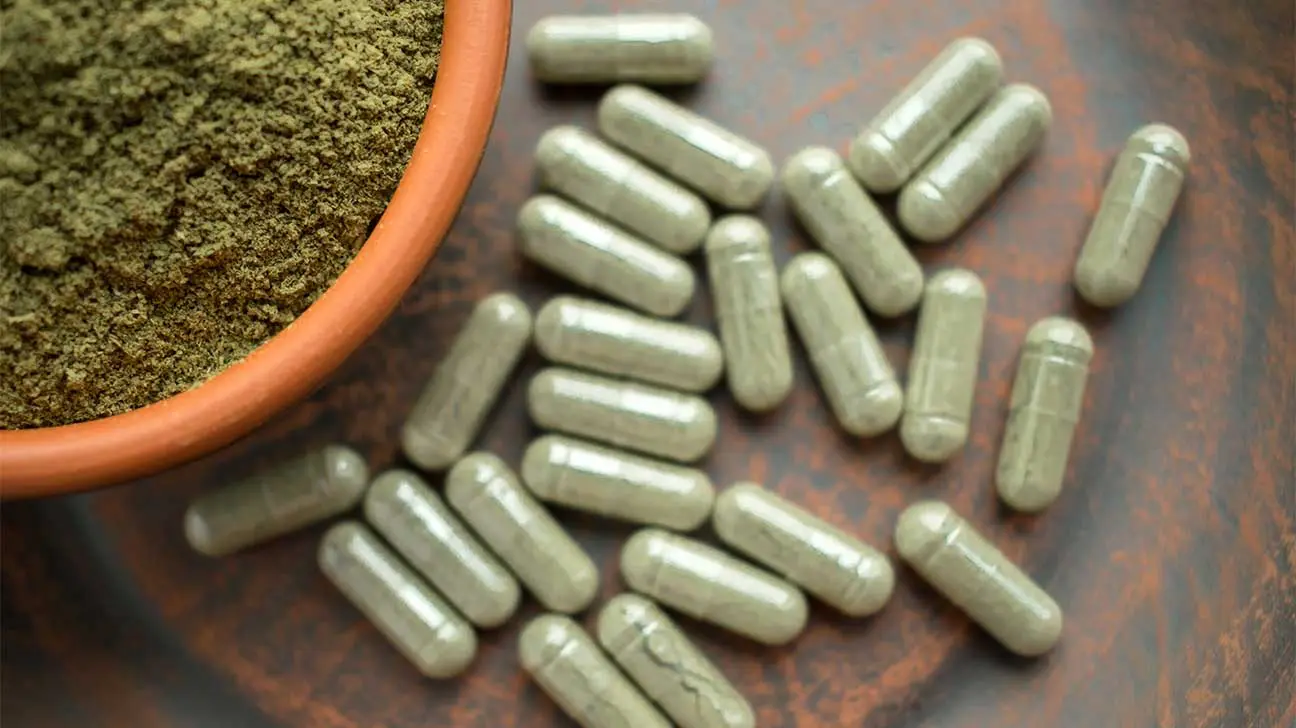
As with other natural substances, Kratom has been falsely marketed as a “safe” alternative for opioids, or a supplement to help manage opioid withdrawal symptoms. Ironically, many opioids are derived from the poppy plant, and though they could be considered natural, they are certainly not safe.
Nonetheless, people have reported using Kratom to self-detox from opioids. In turn, inpatient substance abuse treatment facilities have seen an increase in clients who enter rehab with a Kratom addiction and need treatment similar to those who come to treatment with an opioid addiction.
Currently, Kratom is legal at the federal level, however many states have made Kratom illegal, as well as many cities across the country. Kratom is illegal in Wisconsin, Arizona, Alabama, Indiana, Vermont, and Rhode Island.
What Is Kratom?
Kratom is an herbal extract, from the leaves of an evergreen tree native to Southeast Asia (Mitragyna speciosa), used for medicinal and recreational purposes. It is reported that Kratom has both stimulant and opioid-like effects for those who take Kratom.
Historically, Kratom has been used as a substitute for opium replacement, a stimulant to increase work effort, relieve fatigue, diabetes, diarrhea, pain, and fever.
People typically ingest Kratom orally, what used to be available as teas or raw leaves, is now available in capsules, concentrated extracts, tablets, and dried leaves. Dosages vary based on the type of Kratom, but it seems that 3 to 5 grams per dose, up to three times per day, is standard.
However, Kratom is unregulated, and therefore a person can never know for sure how much Kratom is actually in what they are ingesting. As with other substances that are not regulated, Kratom has been mixed with a variety of substances, including other opioids and synthetic compounds.
Is Kratom An Opioid?
Kratom has not been classified as an opioid, however, scientists have established several factors that make the answer to this question very complex.
For example:
- Kratom contains an opioid agonist, opioids are opioid agonists
- People have become dependent on Kratom, people become dependent on opioids
- Kratom is addictive, opioids are addictive
- Kratom has similar withdrawal symptoms as opioid withdrawal
- Kratom overdoses can be reversed with Narcan, which does the same for opioids
- Pregnant women who have used Kratom have had babies that were born with neonatal abstinence syndrome, like those babies born to women with heroin addiction
The Drug Enforcement Administration attempted to add Kratom to Schedule I of the Controlled Substance List, but due to public backlash, the request was withdrawn.
Kratom is not currently labeled as an opioid or controlled substance.
Kratom For Opioid Withdrawal
Ingesting Kratom while experiencing opioid withdrawal may ease some of the withdrawal symptoms, but it is not without consequence. Kratom acts on opioid receptors in a similar fashion as opioids. In essence, it is more of a replacement than an alternative.
Kratom is addictive, and there is a risk of overdose as well. At least 36 deaths have been a result of Kratom use.
The symptoms of Kratom withdrawal eerily mirror the withdrawal symptoms of opioid withdrawal, including:
- anxiety
- nausea
- no appetite
- hallucinations
- seizures
Although many distributors of Kratom support its use as a detox for opioids, these claims are not supported by researchers.
Research has found that Kratom has interactions with other drugs. This can be especially dangerous when a person is trying to detox at home from opioids. It is always ill-advised to mix substances, but it is never a good idea to do so during opioid withdrawal without supervision.
Supervised Opioid Detox
Detoxing from opioids is typically a very uncomfortable experience, but participating in a medically supervised detox that offers treatment for opioid use disorder (OUD), will help.
These programs allow the participant to receive medications and approved medication-assisted treatments (MATs) to help ease the discomfort associated with opioid withdrawal.
When a person attends a certified OUD treatment facility, they also have access to substance abuse treatment that is individually tailored to each person, which may include vocational or educational training, substance abuse treatment, case management, health care, and a number of other services.
Treatment For Opioid And Kratom Addiction
The best way to stop abusing opioids or Kratom is to seek assistance from a rehab program that specializes in opioid addiction treatment.
Our specialists are available to help you find a location that will help you safely detox and offer quality substance abuse treatment options. Reach out to us today.
Addiction Resource aims to provide only the most current, accurate information in regards to addiction and addiction treatment, which means we only reference the most credible sources available.
These include peer-reviewed journals, government entities and academic institutions, and leaders in addiction healthcare and advocacy. Learn more about how we safeguard our content by viewing our editorial policy.
- Addiction - Self-treatment of opioid withdrawal using kratom (Mitragynia speciosa korth)
https://www.ncbi.nlm.nih.gov/pmc/articles/PMC3670991/ - Arizona Osteopathic Board - Kratom Fact Sheet For Healthcare Professionals
https://www.azdo.gov/MinutesUploads/press/Kratom%20Fact%20Sheet%20for%20Healthcare%20Professionals%20March%202019%20(1).pdf - Front Psychiatry - Mitragynine Attenuates Morphine Withdrawal Effects in Rats - A Comparison With Methadone and Buprenorphine
https://www.ncbi.nlm.nih.gov/pmc/articles/PMC7221179/ - Journal of the American Osteopathic Association - Pharmacology of Kratom: An Emerging Botanical Agent With Stimulant, Analgesic and Opioid-Like Effects
https://jaoa.org/article.aspx?articleid=2094342 - Kraoma.com - Kratom Legality in the United States
https://kraoma.com/kratom-legality-united-states/ - Mayo Clinic - Kratom for opioid withdrawal: Does it work?
https://www.mayoclinic.org/diseases-conditions/prescription-drug-abuse/in-depth/kratom-opioid-withdrawal/art-20402170 - National Library of Medicine - Pharmacologic and clinical assessment of kratom
https://pubmed.ncbi.nlm.nih.gov/29255059/ - National Library of Medicine - Pharmacologic and clinical assessment of kratom: an update
https://pubmed.ncbi.nlm.nih.gov/31626272/ - National Library of Medicine - Self-reported prevalence and severity of opioid and kratom side effects
https://pubmed.ncbi.nlm.nih.gov/31014959/ - National Library of Medicine - Patterns and reasons for kratom use among current and former opioid poly-drug users
https://pubmed.ncbi.nlm.nih.gov/31816368/

